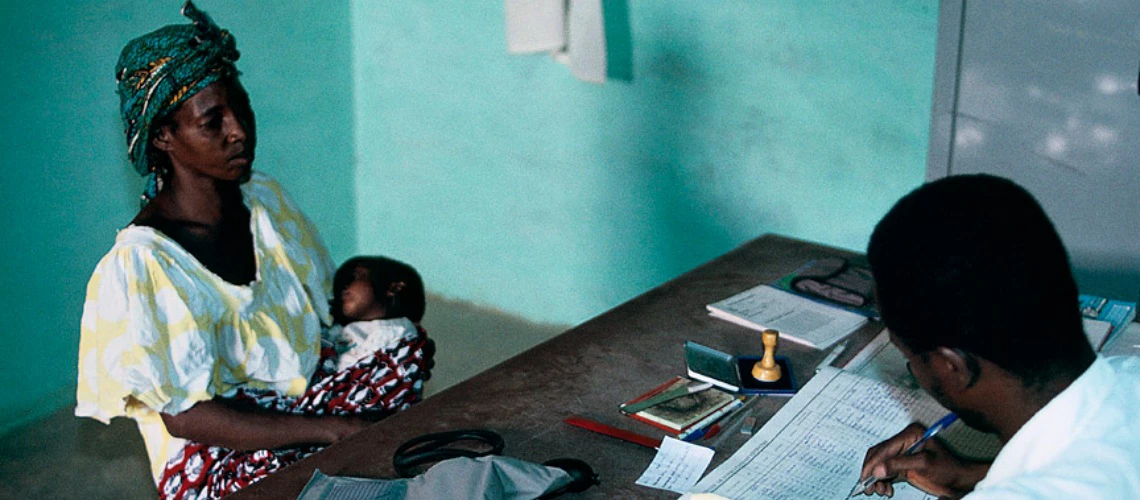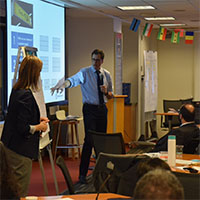Health Systems Deep Dive Courses
Deep-Dive courses complement and are often held after the Flagship Health Systems Flagship Core Courses. These Deep Dive "How-To" courses focus on a specific technical topic within the Flagship Course and provide Flagship course participants and alumni an opportunity to further apply the technical knowledge gained from the Flagship Course and share their own experiences with shared challenges. Flagship Deep Dive Courses also can be requested by World Bank Health Services Task Team Leaders and tailored to meet specialized needs of their client country counterparts, example to have a focused policy dialogue on a specialized topic such as eHealth systems.
-----------------------------------------------------------------------------------------------------------------------------------------------
2023
November 16-17
Digital Health (for Argentina)
Course Materials and Resources
March 27-28
Digital Health (for Ecuador)
Course Materials and Resources
-----------------------------------------------------------------------------------------------------------------------------------------------
2022
Apr 25 – May 6
Primary Heath Care (UHC)
This course introduces the concept of fit-for-purpose PHC, global trend that necessitates reimagination of PHC, and high-level structural shifts required for fit-for-purpose PHC using quality measurements, mobilization in human resource, changes in service delivery, organization, and financing structures.
February 16-18
Non-Communicable Diseases
The main objective of the course was to inspire and motivate policymakers and participants to learn from promising service delivery models and to build back better, drawing on innovations introduced during the ongoing pandemic.
Course materials and resources
February 22
Messaging Guide for Health Financing
This course provided an in-depth look at the guide “Making the Case for Health: A Messaging Guide for Domestic Resource Mobilization “. The guide provides a set of 16 compelling messages that can be used to make the case for investment in health as a way of achieving health sector objectives, including Universal Health Coverage goals.
Course materials and resources
-----------------------------------------------------------------------------------------------------------------------------------------------
2021
June 22
Domestic Resources Management
A deep dive was provided on the concept of domestic revenue mobilization through health taxes, positioning this as one tool for raising revenue in a pandemic context with the added favorable impact on health outcomes combined with greater feasibility and acceptability. Participants were given a chance for 1:1 learning with facilitators during breakout sessions on the topics covered.
Course materials and resources
-----------------------------------------------------------------------------------------------------------------------------------------------
Disclaimer: The Flagship course materials are a product of the staff of the IBRD/the World Bank and external participants to the event. The findings, interpretations, and conclusions expressed in this event do not necessarily reflect the views of the World Bank, the Executive Directors of the World Bank or the governments they represent. The World Bank does not guarantee the accuracy of the data included in this work. The materials should not be reproduced or distributed without the World Bank's prior consent.







Argentina’s COVID -19 Response Project
Argentina’s COVID -19 Response Project was among the first operations approved as part of the WBG’s global response to the COVID-19 epidemic. It provided US$535 million in financing for the purchase of ventilators and other medical equipment and supplies. The Project contributed to ensuring adequate levels of intensive care (IC) capacity throughout the pandemic, with occupation of IC Units peaking in 2021 at 77.9 percent in the Buenos Aires Metropolitan Area, where the health system was under the most stress. It also contributed to the implementation of Argentina’s COVID-19 Immunization Campaign by financing the purchase of 33,397,056 vaccines and the expansion of the cold chain infrastructure for vaccine distribution. As of September 2021, Argentina ranked eighth in term of vaccination rates among 33 Latin American and Caribbean countries, with an estimated 50.49 percent of the population being vaccinated with vaccines purchased under the Project. Read the knowledge brief.